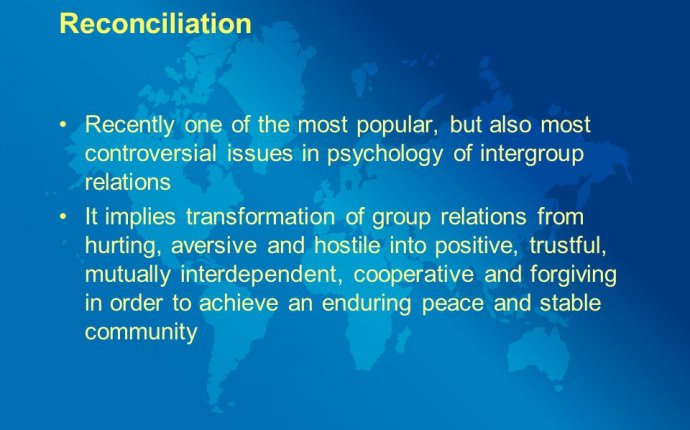
Controversial Issues in Psychology
 Let me try to cover a big topic in a small article. Let’s talk about anger. And as I do, I guarantee I’m going to ruffle some feathers and make a few folks angry.
Let me try to cover a big topic in a small article. Let’s talk about anger. And as I do, I guarantee I’m going to ruffle some feathers and make a few folks angry.
So be it.
First, anger itself is not an “issue.” For most people, the emotion of anger in and of itself is not unhealthy. It makes sense to get angry if someone hurts your child. It’s natural to get angry if someone insults your spouse. If the picnic you’ve planned for months gets rained out, if your flight home from a long business trip gets cancelled, if your World Cup team loses because of a referee’s bad call – getting irked for a short spell really isn’t so bad and is very human.
Are you using that energy of anger to do something productive? Is it helping you to find solutions to whatever ticked you off? Is that energy giving you the slight edge you need to act and do what needs doing? If you’re channeling your anger this way, congratulations! As Wayne Dyer says, “There's nothing wrong with anger provided you use it constructively.”
So the fact that you sometimes get angry doesn’t mean you have “anger issues.”
On the other hand, you might use your anger to get stuck in a fuming, ranting, never-ending cycle that’s more focused on revenge than relief. You might use annoyances large and small to reaffirm how unfair, unjust, and unreliable life is. You keep a general anger on a low simmer, ready to flame up at the least provocation.
This kind of anger moves into the unhealthy range. It’s not only bad for you emotionally, it has negative physical affects as well. In one study of about 13, 000 subjects, individuals with the highest levels of anger had twice the risk of coronary artery disease and three times the risk of heart attack compared to the subjects with low levels of anger. Some researchers believe that chronic anger can be worse than smoking or obesity as a factor that contributes to early death.
So I put this kind of anger into the “anger issues” category. In this case, as the Buddha put it, “You will not be punished for your anger, you will be punished by your anger.”
Another type of anger is one that flares up out of control and seemingly out of the blue. Something happens (or not) and you find yourself incensed and enraged, way out of proportion to whatever just happened (or didn’t). You find yourself saying and doing things that are destructive and maybe even out of character. You turn into the Incredible Hulk – “Hulk Smash!” – flattening whole buildings and obliterating anything in your path.
Yep, I’d call this type of anger an issue.
As Jack Nicholson points out in, “Temper's the one thing you can't get rid of, by losing it.” And by losing it, you can destroy your relationships and your career along with your health.
So what are your options?
The most popular option out there is “anger management, ” which is defined as “a procedure of acquiring the skills to recognize signs that you are becoming angry, and taking action to deal with the situation in a positive way.” Most anger management sessions will help you identify your triggers (the things or situations that typically set you off), stay calm through breathing and relaxation techniques, and remain in control while expressing your needs.
This is fine – when it works. But for many people with real anger issues, these techniques are like sticking a plug in Mount St. Helens. It may work for a while but when the steam really builds up, that sucker’s going to blow!
The problem with many of these therapies is that they don’t deal with the root cause of your anger. If your anger is constant or out of control, you aren’t really responding to situations at hand. Your reaction – in this case, your anger - is coming from that root cause.
This root cause is not necessarily an event you remember. In fact, often that root cause is not even a very dramatic event at all. But it’s the event that sets up how you experience anger going forward. If you don’t deal with the root cause, you’re simply “coping” and bandaging the problem, not healing.
In the Neuro-Linguistic Programming (NLP) that I teach, we’ve developed a procedure called the Mental Emotional Release® (MER®) technique. Among other things, we’ve successfully used MER® with PTSD clients, children with anti-social personality disorder (ASP), and patients with major depression.
In MER®, we track back to the root cause and help our clients to “release” that very first experience of anger. Clients don’t release the memory of the experience, just the charge they attached to it. Like a string of dominoes, once that root cause has been released, subsequent experiences and reactions release as well.
The result? It’s not that you never experience anger again, but you experience anger in the present, not from the past. Rather than being constantly vigilant so your anger doesn’t get out of control, you simply experience anger less often, and the anger you do experience is appropriate to the situation. Rather than “coping skills, ” you’re naturally able to use anger’s energy in positive ways.
If anger is undermining your life, I urge you to seek out solutions and regain your power to choose how you wish to be in the world!
"If a small thing has the power to make you angry, does that not indicate something about your size?" - Sydney J. Harris
Until next time... Mahalo!
Matthew B. James, MA, Ph.D., is President of The Empowerment Partnership, where students learn Neuro Linguistic Programming (NLP), Huna and Hypnosis. To learn more about NLP and MER check out our new Integrative NLP Practitioner Certification® Training.
crowdfunding cz enterprise car rental airport startups to invest in 2021 udacity free courses creativity and entrepreneurship makuake crowdfunding independent entrepreneur excel certification crowdfunding investment sean ivey crowdfunder best start up business ideas ramp startup kickstarter fees funding for start up businesses startup network my class lpu history of education startup ideas 2021 art courses indiegogo fitness entrepreneurship and development face to face classes national education association an entrepreneur is an crowd source funding sites education city forum for women entrepreneurs black female entrepreneurs real estate crowdfunding reddit act training oxford university courses seed crowdfunding milaap charity philippine entrepreneurs social factors affecting entrepreneurial growth








